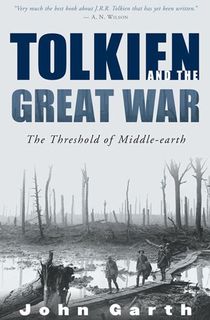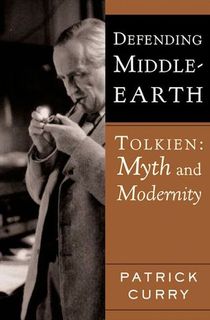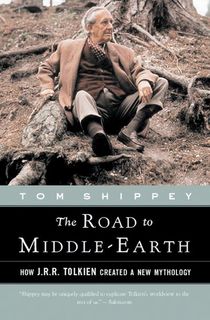Now a major figure in contemporary fantasy himself, on February 26th, 2019 Marlon James gave a lecture at Pembroke College in which he discussed iconic fantasy creator J.R.R. Tolkien. Watch the fascinating talk below.
In 2015, Marlon James became the first Jamaican writer to win the Man Booker Award, for his novel A Brief History of Seven Killings. It explores political and criminal violence in the Jamaican diaspora, spanning decades, continents, and characters, and focuses specifically around the attempted murder of Bob Marley in 1976. Despite his success with historical fiction, James decided to shift gears and enter the world of fantasy.
In 2017, James announced that he would be releasing The Dark Star Trilogy, which was billed at the time as an "African Game of Thrones." In an interview with Vulture, James voiced his frustrations with representation in fantasy: “I realized how sick and tired I was of arguing about whether there should be a black hobbit in Lord of the Rings. African folklore is just as rich [… ] We have witches, we have demons, we have goblins, and mad kings.”
The first installment in the trilogy, Black Leopard, Red Wolf, was released earlier this year. It follows protagonist and narrator Tracker, who scents out people wherever they might be in the various kingdoms he travels. The story is set in an ancient and fantastical version of Africa where the search for a missing child turns into a thrilling adventure.
RELATED: 7 Must-Read Tolkien Books for The Lord of the Rings Fans
In the above lecture James analyzes the impact the Great War had on writers such as J.R.R. Tolkien and C.S. Lewis, and touches on how the trauma of war impacted their fantasy:
Postwar needed new metaphors, new imagery, new villians, new monsters to capture the impossibility of it all. How does one write about the Battle of the Somme, when just describing the battle fails to get at what was really devastating about it? [...] In hindsight he [Tolkien] had no choice but to retreat to myth.
RELATED: 15 Interesting Facts About the Man Behind Middle-earth
Despite his profound understanding of Tolkien, in a recent interview with The Guardian, James confesses that he was not influenced by the icon because when he was younger the “foundational fantasy novels” were inaccessible to him: "Those fantasy novels that you might have thought would be everywhere, like Dune and Lord of the Rings, really weren’t. I read whatever cheap crap got dumped on the third world." Instead, he credits the influence on his current trilogy to Marvel comics.
RELATED: 10 of the Most Important The Lord of the Rings Quotes
James discusses the ways Tolkien used mythology in order to process his traumas during a period when the experience of war was far from the capacity of language. James also explores the potential of mythology to harm, and discusses his process writing a fantasy based in mythology very different than the Nordic myths Tolkien drew from.
The work of Tolkien and James reminds us that those who search for guidance are never astray. J.R.R. Tolkien got it right when he said, "Not all those who wander are lost."
RELATED: Stirring First Trailer for Tolkien Biopic Takes Us There and Back Again
Want to read more about Tolkien's work? Download these great books today!
(via io9)
This post is sponsored by Open Road Media. Thank you for supporting our partners, who make it possible for The Portalist to continue publishing the sci-fi and fantasy stories you love.




